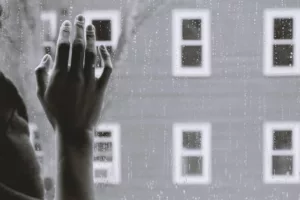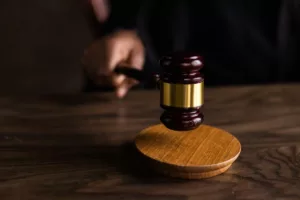Lawyers That Sue Funeral Homes
Dealing with a funeral home can be a challenging and emotional experience, especially when things don’t go as planned. Legal action may sometimes be necessary to protect your rights and interests. Our potential clients often ask what type of lawyer do you need to sue a funeral home. Let’s take a closer look.
When considering action against a funeral home, it’s crucial to have a lawyer focusing on civil litigation or personal injury law relating to funeral home negligence. These types of lawyers have experience in handling cases where individuals have suffered harm or loss due to the actions or negligence of others.
A lawyer can provide legal guidance, gather evidence, and navigate the court system. They can also negotiate with the funeral home and insurance companies to ensure you receive fair compensation for your losses.
Types of Claims Against Funeral Homes Related to Mishandling of Remains
One of the most distressing situations individuals can face when dealing with a funeral home is the mishandling of remains. When a funeral home fails to care for the deceased properly, it can result in significant emotional distress for family members and loved ones. Here are some of the types of cases that can arise when a funeral home mishandles remains:
1. Negligent embalming: When a funeral home fails to embalm a body properly, it can lead to deterioration and decay, making it difficult to view at the funeral or even to transport it to the burial site. Negligent embalming can result in a claim of negligence against the funeral home.
2. Misidentification of remains: One of the most egregious mistakes a funeral home can make is to misidentify the remains of a loved one. Identity errors can result in burying or cremating the wrong body, causing immense emotional distress for the family. A misidentification of remains can give rise to a claim of negligence or intentional misconduct against the funeral home.
3. Loss of remains: In some cases, a funeral home may lose the remains of a loved one. When a funeral home loses the remains of a loved one, it can result in a claim of negligence or intentional misconduct against the funeral home. Misplacement issues can occur for various reasons, such as miscommunication, improper storage, or theft.
4. Failure to properly transport remains: When a funeral home is responsible for transporting remains from one location to another, they must do so safely and securely. If a funeral home fails to transport remains appropriately, it can result in damage to the body or even loss of the remains.
How to Choose the Right Lawyer
When choosing a lawyer for your case, finding someone with a proven track record of successfully litigating cases against funeral homes is essential. Look for a lawyer with experience with the specific type of claim you are pursuing and a reputation for delivering positive outcomes.
Other factors to consider when choosing a lawyer include their communication skills, fee structure, and availability. Opting for a lawyer who offers a free case review can help you make an informed decision before committing to legal action.
Gathering Evidence for Your Case
When pursuing a funeral negligence lawsuit, the strength of your case will depend largely on the evidence you can gather to support your claim. Evidence can come in many forms, including contracts, receipts, photographs, and witness statements. Here are some tips for gathering evidence to support your case:
1. Request all relevant documents: The funeral home should provide you with a contract that outlines the services and costs associated with the funeral. Make sure to keep a copy of this document, as it may be a crucial piece of evidence in your case
Additionally, request any other relevant documents from the funeral home, such as receipts, invoices, and communication records.
2. Take photographs: If you suspect the funeral home mishandled your loved one’s remains or failed to provide services as promised, take pictures of any damage or discrepancies.
3. Obtain witness statements: If there were witnesses to any wrongdoing by the funeral home, ask them to provide a written statement detailing what they saw or heard. Witness statements can be compelling evidence in a lawsuit.
4. Keep a record of expenses: If you incurred any additional fees due to the funeral home’s wrongdoing, such as the cost of repairing damage or the cost of reburial, keep a record of these expenses. This can help you demonstrate the financial impact of the funeral home’s actions.
5. Preserve evidence: It’s vital to preserve all evidence related to your case and avoid tampering with it. If you have physical evidence, such as photographs or documents, keep them safe and do not alter them in any way. Additionally, if you have any digital evidence, keep backups if the original files are lost or damaged.
By gathering as much evidence as possible to support your case, you can help build a strong argument against the funeral home and increase the chances of a successful outcome. An experienced lawyer can also assist you with evidence gathering and ensure that you have all the necessary documentation to support your claim.
The Importance of Acting Quickly
When pursuing legal action against a funeral home, time is of the essence. Strict deadlines and statutes of limitations may apply, and delaying legal action can negatively impact your case. Seeking legal advice as soon as possible can help you determine the best action and preserve evidence.
Traction Law Group handles funeral home lawsuits and offers a free case review to evaluate your potential legal options. If you believe you have a claim against a funeral home, contact us today to speak with a funeral lawyer who can help protect your rights and interests.







